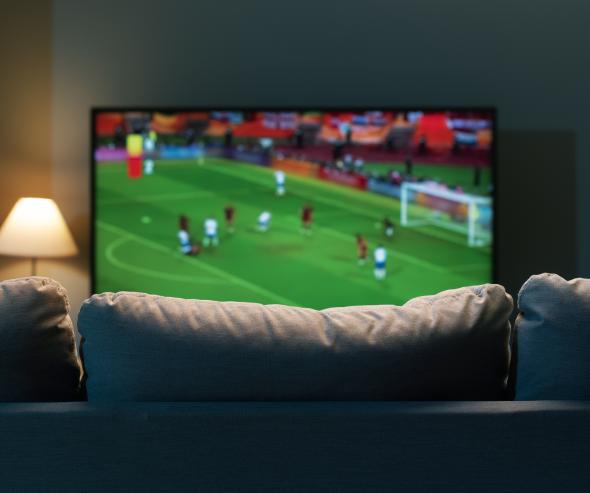Extending the duration of professional football broadcasting rights to five years: The Autorité de la concurrence publishes its opinion on the draft decree and invites the Government to undertake a more comprehensive review

Background
The Autorité de la concurrence has been referred to by the Minister of the Economy, Finance and Industrial and Digital Sovereignty to issue an opinion on a draft decree aimed at extending from four to five years the maximum duration of contracts concluded for the marketing of the audiovisual broadcasting rights mentioned in Article R. 333-3 of the French Sports Code (Code du sport).
According to the authors of the text, this extension is likely to foster the entry of new operators on the market for the acquisition of League 1 rights, stimulate competition for purchases and increase revenues for the LFP through higher prices, to the benefit of the entire football ecosystem.
While the Autorité's investigation was unable to confirm the effectiveness of the proposed measure with regard to its objective, it did not highlight any decisive risk of harm to market structure (foreclosure of broadcasters) or consumer welfare (increase in subscription prices). In principle, therefore, the draft decree does not give rise to any major reservations.
However, the Autorité points out that Article R. 333-3 of the French Sports Code (Code du sport) provides a comprehensive framework for the marketing of League 1 audiovisual broadcasting rights. In these circumstances, the Autorité considers that by amending just one of these provisions, without more broadly considering the impact of such a modification on the operation of the system as a whole, the balance sought by Article R. 333-3 may be called into question.
The Autorité invites the Government to initiate a more global reflection on the framework set out in Article R. 333-3. If the government commits to this course of action, the Autorité will need to be in a position to carry out an in-depth analysis of the sector, which will require more information (more detailed impact study, regulatory review, data, etc.) than that provided in the context of this request for an opinion.
The professional football audiovisual broadcasting rights marketing sector
The marketing of the audiovisual broadcasting rights to sporting events is regulated by the French Sports Code (Code du sport), which stipulates that when sports federations, which own the audiovisual broadcasting rights to the sporting events and competitions they organise, transfer these rights to sports companies, they are marketed centrally by the professional league. To date, only the Fédération Française de Football has transferred ownership of its rights; it is therefore the only body concerned by the provisions of Article R. 333-3 of the French Sports Code (Code du sport).
With regard to the allocation of these rights, this article specifies that this takes place following a public invitation to tender. It also specifies that the rights are offered in several separate lots, with each lot awarded for a period not exceeding four years to the candidate whose proposal is deemed the best. It is this four-year period that the draft decree seeks to modify.
While Article R. 333-3 of the French Sports Code (Code du sport) applies to the marketing of League 1 and League 2 rights, in this opinion the Autorité focused its analysis on the broadcasting of League 1 matches, in particular due to their particularly attractive nature and the fact that, until now, they have mainly been purchased by pay TV operators.
The competitive implications of extending the operating period to five years
The Autorité (then the Conseil de la concurrence) has already had occasion to express its views on the subject of extending the maximum operating period for rights, in two opinions given in 2007 (07-A-07 and 07-A-15).
In its opinion 07-A-07, the Conseil de la concurrence considered that limiting the duration of contracts was an essential counterbalance to the restriction of competition linked to the centralised sale of "the most attractive audiovisual broadcasting rights in football which, having been transferred to the clubs, should be sold by them". Ithad also considered that guaranteeing a certain period of exclusivity was necessary to enable buyers to implement and offset the investments required to enter the market and capture a subscriber base.
According to the authors of the draft decree, extending the duration of rights contracts from four to five years would make it easier to offset the major investments that new entrants have to make (price of rights, marketing and production investments, etc.). The incentives for new entrants to enter the rights acquisition market, could increase and competition between buyers would be likely to increase revenues for the LFP through higher selling prices for rights.
-
Extending operating periods is not a necessary or sufficient condition for new market entry
In the course of its investigation, the Autorité found that the majority of players questioned during the investigation confirmed, on a theoretical level, that a five-year period was likely to facilitate the offsetting of the investment and therefore increase the incentives to enter the market.
In practice, however, the Autorité found that the potential new entrants questioned did not clearly identify the extension of the duration as a decisive incentive for entering the market, particularly in the case of platforms. In addition, the Autorité notes that the investigation did not unequivocally establish a causal link between the entry into the market of new operators (some of which have since exited) and the extension of contract durations from three to four years in 2007.
The Autorité also points out that the capacity of operators to offset the value of League 1 operating rights in the event of an increase in contract durations must be weighed against the price rise resulting from this increase, which may also dissuade smaller operators from bidding for the rights.
-
Extended operating periods do not threaten the competitive structure of downstream markets or consumer welfare
As it pointed out in its 2007 opinions, the Autorité considers that a longer duration for exclusivity contracts theoretically increases the risk of the losing bidders being foreclosed from the pay TV services market, since the rights in question are an essential resource for the success of a pay TV offering.
The Autorité found that these markets have evolved (growing attractiveness of sporting events other than League 1, emergence of non-linear pay TV services not offering sports content), and notes that the broadcasting of League 1 as part of a pay TV offer seems less essential today than it was in 2007. In this context, the risk of bidders being foreclosed from tenders for this competition, as highlighted by the Conseil de la concurrence in its 2007 opinions, seems less significant today.
The Autorité also points out that the allocation mechanism reduces the risk of a broadcaster being foreclosed and of all broadcasting rights being concentrated with a single operator. It notes on this point that, as since 2007, at least two operators have been awarded lots in each of the calls for tender launched by the LFP.
Lastly, the Autorité analysed a risk of increase in the price of subscriptions offered to the public in the event of rising prices for League 1 operating rights, following an extension of their duration. The Autorité found that the existence on the downstream market of alternative pay services including League 1 matches, favoured in particular by the awarding mechanism, is a first limit to the risk of price increases downstream. Secondly, it points out that extending the duration of contracts does not in itself affect the structure of downstream markets, and is therefore unlikely to significantly increase broadcasters' incentives to raise their subscription prices compared with the current situation.
Opinion 23-A-12 of 26 July 2023
Contact(s)
